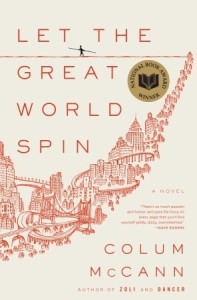 When I make the time to read it, I really enjoy The Writer’s Chronicle. In addition to the classified writing opportunities, there are usually a few craft articles or interviews that are useful and interesting. One such article that I enjoyed in the current issue (September 2014) is Debra Spark’s “Raiding the Larder: Research in Fact-Based Fiction.” Admittedly, the point of the article—that effective research can elevate a novel and transport the reader so long as it doesn’t get in the way of the story—is familiar. It’s a common enough conundrum—how much research is too much?
When I make the time to read it, I really enjoy The Writer’s Chronicle. In addition to the classified writing opportunities, there are usually a few craft articles or interviews that are useful and interesting. One such article that I enjoyed in the current issue (September 2014) is Debra Spark’s “Raiding the Larder: Research in Fact-Based Fiction.” Admittedly, the point of the article—that effective research can elevate a novel and transport the reader so long as it doesn’t get in the way of the story—is familiar. It’s a common enough conundrum—how much research is too much?
What really grabbed me about the article, though, was this: “Next to ‘How are you?’ the question that I most regularly ask people is ‘What have you read lately that you love?’ For years now, when people have asked me to respond in kind, I’ve said, ‘Colum McCann’s Let the Great World Spin.” She goes on to say, “I love the novel as a work of fiction: for its artful construction, big vision, emotional accuracy, compelling characters, and complicated conceit, but it also impresses me as a research accomplishment.”
Exactly. I’ve been saying more or less the same thing since I read the book in 2010. I was so blown away by the book—despite some misgivings about narrative threads that for most of the novel seemed to have nothing to do with each other—that I considered giving up my own writing. What was the point? But then I read a lesser novel, one with little ambition executed poorly, and I was freed from my paralysis. (“I can’t do any worse than this,” I remember thinking.)
Spark contrasts McCann’s work with the work of other fine writers who merely use the facts of life as ingredients for their work. She’s borrowing from Lorrie Moore here, whom she quotes: “For the writer, the facts of life are like ingredients in a kitchen cupboard. The cake you make is the fiction.” Nothing wrong with that, and Spark cites examples: Alice Munro, Richard Russo, Elizabeth Strout, William Trevor, and Tobias Wolff. Other writers, like McCann, though, “go looking for something different, find it, explore it, then come back to report.”
Spark observes that many of her favorite books and indeed many notable books generally appear to be deeply researched. She notes that part of what appeals to her about these books is that they taught her something. Research can be a trip—literally and figuratively—that will lead to places the writer never meant to go, but that’s part of the joy of doing the work. As long, that is, as we keep reminding ourselves that not all of that great research needs to wind up in the book, at least not on the page.
